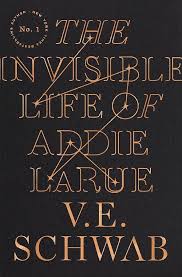Chapter V
byChapter V begins with a scene of intense emotional conflict, where the protagonist, feeling overwhelmed by the storm within his mind, seeks solace by climbing to the roof of a building. The world below feels distant, and he believes the only way to find peace is by distancing himself physically from the noise of life. However, once perched on the ledge, his moment of calm is abruptly interrupted when people begin noticing him. His silhouette stands stark against the expansive city skyline, and shouts rise from the crowd below, some imploring him to come down, others making threats. Yet, despite the pleas, their voices remain far removed from the anguish inside his head, rendered insignificant by the overwhelming chaos of his emotions.
In a moment of total disconnection, the protagonist steps off the ledge without conscious thought, but the fall is etched into his memory in vivid detail. He recalls the sensation of the wind rushing past him, the cold sting of rain against his face, and the strange paradox of freedom he experienced as he descended toward the unknown. And then, just as suddenly, everything goes black—an abrupt ending to a moment he never truly intended to begin. He awakens in a sterile hospital room, his body bruised but still alive, his mind reeling with questions. Why had he chosen to jump, and why, despite it all, was he still breathing? His family and friends visit him, their faces a mixture of relief that he’s alive and sorrow for what he tried to do. Their well-intentioned words of comfort seem hollow, lost against the constant storm brewing inside his mind. When the doctors speak of his survival as a “miracle,” he can’t help but laugh, though it’s devoid of humor. To him, he doesn’t feel like a miracle—he feels like something broken, something lost in a cruel cosmic joke, unable to make sense of his own survival.
Recovery, when it comes, is painfully slow. The physical therapy sessions blur into one another, a never-ending cycle of monotonous exercises that do little to quell the emotional turmoil he continues to experience. He’s given medications meant to calm his mind, but they only seem to dampen the storm without extinguishing it entirely. The world around him tells him he should be grateful, that he’s been given a second chance at life, but gratitude feels foreign. It’s as though the very concept of feeling thankful is as unreachable as the sun behind a perpetual storm cloud. As he stares out the window of his hospital room, watching life move forward outside, he comes to a painful realization: nothing has truly changed. The jump didn’t quiet the storm in his head; if anything, it only magnified the complexity of his internal struggle. He understands now that surviving the jump was the easy part. The real test lies in facing the aftermath—the slow, arduous journey of rebuilding what he has lost, both physically and emotionally. It’s about learning how to live again, even when the weight of the world feels too heavy to bear.
This chapter delves into the deep psychological struggles that follow moments of trauma or extreme emotional pain. It challenges the notion of survival, showing that simply staying alive does not necessarily mean healing. The protagonist’s emotional journey is a powerful reminder that recovery is more than just a physical process—it’s a battle of the mind, requiring resilience and the ability to confront feelings that seem too overwhelming to face. His struggle to find meaning in a life that feels like it’s been left in ruins is a common experience for many who find themselves grappling with depression, guilt, or a sense of hopelessness. The storm inside him, which had driven him to the edge, remains a constant presence, a reminder that the road to emotional recovery is not linear. In fact, surviving the fall is just the beginning; it’s the internal fight, the silent battles fought within the confines of his own mind, that will determine whether he can ever truly find peace again. The chapter captures the universal truth that overcoming internal struggles often requires more than external support—it requires a deep, unshakable strength that must come from within.


